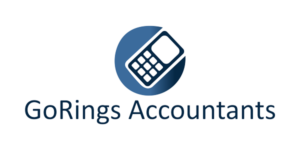A complete guide for how the Payroll system works in the UK:
When you start a new business you have to know all about the tax laws. And payroll is one of them. It is an important tax duty for a business or company owner if he has paid employees working for him. The number of payments that a business or a company must pay its employees for a specific period of time or a specific date, including salaries, wages, bounces, net pay, and discounts. In most cases, payroll is controlled by the accounting department of a company. Small businesses can manage their payroll directly in-house or by hiring an accountant. Most of the big companies can easily sustain a Payroll division. But for small businesses, it is better to outsource their Payroll Gorings accountants ltd.
Understanding the Payroll can be complicated since there are lots of aspects in this tax system.
Here are 4 simple steps for you to understand the Payroll system:
- It is a process to calculate and report how an employee or employees are getting paid by an employer and their information.
- It is also a process to calculate how much an employer pays his employees during each pay period
- This is the process that produces and sends employees payslips regularly. Mostly monthly
- And at the last, you submit all the details accurately on time to the HMRC.
Payroll tax periods:
If you are a freelancer, director, entrepreneur, company, or business owner, this is how often or what periods payroll should run. Maybe you are running the payroll for yourself as a business owner salary or a director salary or maybe you are running this for employees. But the important thing is you have to know what a Payroll tax period is.
Now according to the payroll and PAYE (Pay As You Earn) system, the payroll tax calendar is different from a normal calendar. Imagine you paid an employee £1000 in January and you are planning to pay them as they worked in the month from 1st January to 31st January, that is a regular calendar. But a payroll tax calendar will start from the 6th of the month and end on the 5th of the next month. So in this particular case, a payroll tax calendar will start on 6th of the January and end on 5th of the February.
How does Payroll work in the UK?
If you are an employer and you have hired employees for your business or company, It is your job to calculate how much tax is owed by your employees. Remove it from the pay packet of your employees and make a report about it and send it to the HRMC. In the UK payroll works through the PAYE system as we discussed earlier.
You should update your accounts frequently because you will pay the payroll every month. You have to make sure your employees are getting paid accurately. Because you have to send your recent deductions reports to the HMRC. You must send the reports before by the 19th of the month if you are paying offline or before by the 22nd of the month if you are paying online.
Payroll deadlines:
There are a lot of deadlines for every aspect of Payroll. It can be very confusing for most business owners. You must organize your accounts frequently. For any mistakes or late submissions, there are penalties. Here is a list of the most important dates of payroll.
- 1st of every month: Presenting date for the new group of businesses of companies
- 5th of every month: Ending date of PAYE
- 6th of every month: Starting date of PAYE
- 19th of every month: Deadline for offline PAYE submission
- 22nd of every month: Deadline for online PAYE submission
- 31st May: By the 31st may of each year, employers must provide every employee working for them with a P60 form by the 5th of April and for whom they have filed FPS.
- 6th July: Deadline for submitting Expenses & Benefits Forms P11D(b), P9D, and P11D to the HMRC. Also, the last date to give P11D and P9D forms to the relevant employees and submitting Employee Share Scheme Annual Return form 42 to the HMRC.
- 19th July: PAYE and Class 1 A NIC payment date for offline payment.
- 22nd July: PAYE and Class 1 A NIC payment date for online payment.
- 31st July: Settlement agreement submission date for PAYE
- 19th October: Payment date of 1 B NIC of PAYE offline
- 22nd October: Payment date of 1 B NIC of PAYE online
How to set up Employer PAYE and Payroll?
PAYE or Pay As You Earn is an idea of HMRC to collect income tax and national insurance from the employees. It takes at least 5 business days to get your PAYE reference number. You can apply online from www.gov.uk. At last but not least you have to get registered before the first payday. All the business and company owners must apply for setting up a PAYE scheme as an employer.
Once you are registered as an employer, you will be able to set up your payroll all by yourself using the Payroll software or you can hire an accountant to do it for you. But still, you will be the only person who is responsible for collecting and keeping your employee’s details. Even if you are outsourcing your payroll you will be responsible for compliance with PAYE. Submitting Employers Liability Insurance is another important thing when your company or business hires one or more new employees. You can get daily fines if you don’t submit it on time.
How to set up Employee PAYE and Payroll?
You must set up a Payroll as soon as you hire one or more employees for your business or company. Every time you pay your employees you should record their salary, calculate the deductions, calculate the employer’s National Insurance contributions that you will have to pay, produce the payslips, and everything else in an FPS (full payment submission) to HMRC. Gorings accountants ltd
- Get your PAYE reference number online: You can apply for your PAYE reference number online from gov.uk. It will take 5 workings to get your number.
- Employee’s tax code: You can get this from payslip, P60, P45, or in the pension letters
- Employee’s national insurance number: This can be found in a letter about tax, benefits and pensions, payslips, or P60 form.
- Employee’s P45 form from a previous employer: This will give details of what they have paid so far in the tax year and help in implementing the correct tax code. If they can’t provide the P45 form, HMRC has other options available for these situations.
- Set up PAYE for your new employee: Now you are ready to pay your employee and set up their PAYE. Every time you make a payment, you have to record their Pay, calculate their deductions, calculate their National Insurance contributions that you will pay. Organize all the payslips and necessary paperwork and submit it to HMRC.
All of this is a very complicated task to do. It can be very time consuming and requires a lot of effort. But you can always hire professionals to do all the hard work on your behalf.
Payroll tax rates:
The corporate income tax rate is 20% and the tax rate of individuals varies on their income. When the income is high the tax liabilities of an individual increase. The tax of an individual starts when the income is £12,500. The tax rate can be as low as 20% of the income and as high as 45% of the income. Here is a list with detailed information about tax rates
| Income | Tax rate |
| £12,500 to £50,000 | 20% |
| £50,000 to £150,000 | 40% |
| Anything above £150,000 | 45% |
These employees form your monthly PAYE bill to pay certain national insurance and repay student loans with income tax deductions. The PAYE bills must be paid between the 6th and the 22nd of a tax month.
Importance of Payroll:
Payroll is one of the most important financial parts of a business organization, as it can have an outstanding effect on a company’s net income. Moreover, Payroll is subject to various laws and regulations. Because of the factors involved in Payroll, both legally and ethically, It is important that any business should maintain a perfect record of its Payroll.
Payroll can put various impacts on your business. It can show a business owner whether his business making a profit or not. An accurate Payroll can determine if a business is losing more money because it is spending too much to pay employees. If that is the case then you need to consider laying off some of the employees so the business can become more profitable. Every business owner should have a perfect and consistent Payroll so that they can pay their employees properly and hold back the exact amount of taxes and have a better idea of their cash flow.


